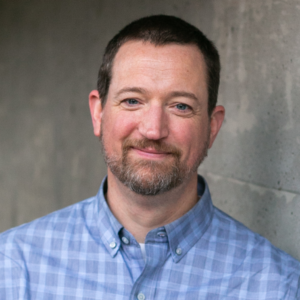Human and Machine … in the Age of Artificial Intelligence: Exploring Faithful and Faith-filled Social Interaction in a Shifting Media Landscape
Sponsored by: Trinity Western University (twu.ca) and the School of Arts, Media + Culture; and the Christianity and Communication Studies Network (theccsn.com)
Host: Robert Woods, Executive Director, Christianity and Communication Studies Network; Visiting Scholar, Trinity Western University
Lead Facilitators: Kevin Schut, Trinity Western University; Scott Macklin, Trinity Western University
Keynote Presenters: Derek Schuurman, Calvin University; Chase Mitchell, East Tennessee State University
Date/Time: Friday, June 7, 2024 | 11:30 am–3:00 pm EDT
Return to List of all Summer Workshops in Faith and Communication
Description: A Christian faith-infused, transdisciplinary conversation that aims to explore the implications of Artificial Intelligence (AI) in all segments of public and private life. The unconference features keynote speakers and round-table discussions that will engage participants in thought-provoking conversations and inspiring reflections. As an unconference, the focus will be on unscripted, informal exchanges in small groups that revolve around topics of shared interest. The event will serve as a platform for sharing research, experiences, and practical applications related to AI in the realms of art, music, business, education, science, and more. It will foster collaboration among scholars and practitioners interested in exploring the intersections of Christianity, technology, and various disciplines. Finally, this year’s encounter will serve as a generative mechanism to produce a transmedia suite of artifacts (e.g., a book, podcasts, videos, framing guides, etc.)
In today’s rapidly advancing technological landscape, AI has emerged as a transformative force with unprecedented benefits and opportunities to amplify human flourishing in almost every area of life. At the same time, AI’s structures and ideological biases present numerous pitfalls for misuse and injustice in areas such as politics, law, religion, medicine, and financial markets, to name several. And while concerns about AI’s impact on responsible civic engagement and public discourse are important, equally important is how AI can undermine human dignity and virtue, including critical challenges to privacy and self-determination.
Meanwhile, AI and its digital counterparts are driven by a “religion of technological optimism” which privileges strident individualism over moral responsibility and elevates technical skill over non-instrumental virtues such as humility, moderation, stewardship, justice, and authenticity. Not surprisingly, this techno-minded worldview fosters a messianic belief in technological advancement as the path to societal progress and personal happiness.
In light of these and other challenges, as faithful critics and caretakers we need to avoid the tendency to let our conversations about digital culture and AI devolve into debates between celebrants and skeptics. A hopeful critique must avoid the celebratory, naïve, and idolatrous assumption that human flourishing will arise naturally from any established political-technological-economic system. On the other hand, we cannot fall into cynical despair or embrace a dystopian fear that AI is taking us all to hell in a handbasket.
As Christians, we joyfully celebrate all benefits the tools of communication afford as part of God’s wondrous gifts of creation. At the same time, because these tools are formed from the earth’s resources and human design, they suffer the effects of humanity’s fall into sin. We thus recognize the importance of faith-filled responses to AI that integrate a biblical worldview and include questions such as: what does it mean for AI to be rooted in God’s good created order, and how does this effect the Church’s communication to the world? How can AI help us grow in love for God, ourselves, neighbor, and the environment? What biblical values, norms, and virtues are important for responsible and ethical use of AI? Additionally, as AI continues to expand and become more capable of doing things that only humans could previously do, how does it effect our humanness? In what ways are people distinct from machines? In essence, what does it mean to be fully human, or image bearers created in the image of God (Gen. 1:26–28), in the age of AI?
The overarching goal of this encounter is to foster the start of a dialogue around these and other key questions that integrate biblical teachings, theological perspectives, and Christian ethics with cutting-edge AI advancements. By acknowledging the affordances and constraints of AI, we can proactively address the potential ramifications on human creativity, spirituality, and societal well-being. Our faith in Christ compels us to explore how AI can be harnessed to foster human flourishing while also being vigilant against its potential misuse. Together, we can envision a hopeful future where AI serves as a tool to enhance human creativity, expression, and innovation in obedience to God. May our shared efforts bear fruit that resonates not only within our Christian communities but also across humanity as we collectively shape a future that reflects God’s wisdom and love in this technologically transformative era.
 Kevin Schut (PhD, University of Iowa) is a Game Studies scholar. He is a graduate of Calvin College (Grand Rapids, MI; BA in Communication Arts & Sciences, History, 1996) and the University of Iowa (Iowa City, IA; MA and PhD in Communication Studies, 2004). He wrote the book Of Games and God: A Christian Exploration of Video Games (2013). He writes about the intersection of communication, culture, media, technology and faith, primarily by talking about computer and video games. He has published articles or chapters on fantasy-role-playing computer games and masculinity, on computer games and myth, on the presentation of history in computer games, and on evangelicals and games. He is currently researching moral and ethical decisions in video games. Kevin served as the Chair of the Department of Media + Communication, and he is the Lead for the Game Development program he founded in June 2019. He has also served as Associate Dean of the School of the Arts, Media + Culture. He teaches a range of courses on media and culture. Kevin grew up in Edmonton, Alberta, and still cheers for the Oilers. After graduating from Calvin College, he married and taught overseas in schools for missionary kids in the Cote d’Ivoire and Hungary for three and a half years. He has three daughters who love playing board games, adventure games, Mario Kart, and Vive Virtual Reality with him. His favorite game series is Sid Meier’s Civilization. Connect with Kevin here: https://www.twu.ca/profile/kevin-schut
Kevin Schut (PhD, University of Iowa) is a Game Studies scholar. He is a graduate of Calvin College (Grand Rapids, MI; BA in Communication Arts & Sciences, History, 1996) and the University of Iowa (Iowa City, IA; MA and PhD in Communication Studies, 2004). He wrote the book Of Games and God: A Christian Exploration of Video Games (2013). He writes about the intersection of communication, culture, media, technology and faith, primarily by talking about computer and video games. He has published articles or chapters on fantasy-role-playing computer games and masculinity, on computer games and myth, on the presentation of history in computer games, and on evangelicals and games. He is currently researching moral and ethical decisions in video games. Kevin served as the Chair of the Department of Media + Communication, and he is the Lead for the Game Development program he founded in June 2019. He has also served as Associate Dean of the School of the Arts, Media + Culture. He teaches a range of courses on media and culture. Kevin grew up in Edmonton, Alberta, and still cheers for the Oilers. After graduating from Calvin College, he married and taught overseas in schools for missionary kids in the Cote d’Ivoire and Hungary for three and a half years. He has three daughters who love playing board games, adventure games, Mario Kart, and Vive Virtual Reality with him. His favorite game series is Sid Meier’s Civilization. Connect with Kevin here: https://www.twu.ca/profile/kevin-schut
 Derek Schuurman (PhD, McMaster University) worked as an electrical engineer for several years and later completed a doctorate in the area of robotics and computer vision using machine learning. He is currently professor of computer science at Calvin University, a fellow of the American Scientific Affiliation, and an advisor for AI&Faith. He has written about faith and technology issues in a variety of publications including monthly columns in Christian Courier and contributions to the Christian Scholars Review blog. He is the author of the book Shaping a Digital World: Faith, Culture and Computer Technology and co-author of A Christian Field Guide to Technology for Engineers and Designers, both published by InterVarsity Academic Press. Connect with Derek here: https://sites.calvin.edu/
Derek Schuurman (PhD, McMaster University) worked as an electrical engineer for several years and later completed a doctorate in the area of robotics and computer vision using machine learning. He is currently professor of computer science at Calvin University, a fellow of the American Scientific Affiliation, and an advisor for AI&Faith. He has written about faith and technology issues in a variety of publications including monthly columns in Christian Courier and contributions to the Christian Scholars Review blog. He is the author of the book Shaping a Digital World: Faith, Culture and Computer Technology and co-author of A Christian Field Guide to Technology for Engineers and Designers, both published by InterVarsity Academic Press. Connect with Derek here: https://sites.calvin.edu/
 Chase Mitchell (PhD, Texas Tech University) is Assistant Professor of Media and Communication at East Tennessee State University, where he teaches courses in strategic communication, technical communication, and media studies. Chase also directs ETSU’s Technical and Professional Writing program. He contributes a monthly online column, “Image to Image,” for the Christianity and Communication Studies Network, and has published in scholarly and popular outlets such as Christian Scholar’s Review and FaithTech. Chase lives in Bristol, Tennessee, with his wife Mott and their two dogs, Bigfoot and Fuzzle. He enjoys baseball, books, and British comedy. When it’s nice outside, he and Mott love traipsin’ around the hills and rivers of southern Appalachia. Connect with Chase here: https://www.etsu.edu/cas/litlang/faculty/mitchell.php
Chase Mitchell (PhD, Texas Tech University) is Assistant Professor of Media and Communication at East Tennessee State University, where he teaches courses in strategic communication, technical communication, and media studies. Chase also directs ETSU’s Technical and Professional Writing program. He contributes a monthly online column, “Image to Image,” for the Christianity and Communication Studies Network, and has published in scholarly and popular outlets such as Christian Scholar’s Review and FaithTech. Chase lives in Bristol, Tennessee, with his wife Mott and their two dogs, Bigfoot and Fuzzle. He enjoys baseball, books, and British comedy. When it’s nice outside, he and Mott love traipsin’ around the hills and rivers of southern Appalachia. Connect with Chase here: https://www.etsu.edu/cas/litlang/faculty/mitchell.php
 Scott Macklin (PhD, Nelson Mandela University) holds a MPhilF in Philosophical Aesthetics from the Institute for Christian Studies and a BA degree in Communication from Vanguard University (Summa Cum Laude). Scott creates stories using deep media and can usually be found looking for an espresso. He is an award-winning author, interactive designer and documentary filmmaker. His work focuses on developing narrative-based learning systems and comprehensive strategies to improve education and the ways we can reach and engage our students and constituents. His teaching and scholarship focus on developing critical career connected pathways. Central to his work is the notion of storytelling where stories are forged in the process of deep hanging out; where a story is made in collaboration with a community of practice, where one engages in the act of making the story “with” people from a particular community not just “about” them. Scott served as a Committee Member on the City of Seattle’s Music and Art Commission Community and Youth Development Commission, as the curator of TEDx Seattle, and on the advisory board of Seattle Interactive. He currently serves on the Board of Trustees for the Institute of Christian Studies. Connect with Scott here: www.scottmacklin.com
Scott Macklin (PhD, Nelson Mandela University) holds a MPhilF in Philosophical Aesthetics from the Institute for Christian Studies and a BA degree in Communication from Vanguard University (Summa Cum Laude). Scott creates stories using deep media and can usually be found looking for an espresso. He is an award-winning author, interactive designer and documentary filmmaker. His work focuses on developing narrative-based learning systems and comprehensive strategies to improve education and the ways we can reach and engage our students and constituents. His teaching and scholarship focus on developing critical career connected pathways. Central to his work is the notion of storytelling where stories are forged in the process of deep hanging out; where a story is made in collaboration with a community of practice, where one engages in the act of making the story “with” people from a particular community not just “about” them. Scott served as a Committee Member on the City of Seattle’s Music and Art Commission Community and Youth Development Commission, as the curator of TEDx Seattle, and on the advisory board of Seattle Interactive. He currently serves on the Board of Trustees for the Institute of Christian Studies. Connect with Scott here: www.scottmacklin.com
Robert H. Woods Jr. (PhD, Regent University) served as Professor of Communication and Media at Spring Arbor University for 20 years. He currently serves as the Executive Director of the Christianity and Communication Studies Network (CCSN) (www.theccsn.com), a non-profit network providing resources and training on faith-learning integration in the field of communication studies. He is the editor-in-chief of the CCSN’s imprint, Integratio Press. Dr. Woods has served as the President of the Religious Communication Association (RCA) and was named Scholar of the Year by RCA. He is the recipient of multiple research and scholarship awards and the editor/author of over a dozen books. Most recently, Dr. Woods is the co-author with Paul Patton on Everyday Sabbath: How to Lead Your Dance with Media and Technology in Mindful and Sacred Ways and Professing Christ: Christian Tradition and Faith-learning Integration in Public Universities. His book co-authored with Kevin Healey (University of New Hampshire), titled Ethics and Religion in the Age of Social Media: Digital Proverbs for Responsible Citizens received the Book of the Year Award from RCA. He currently serves as a visiting scholar at Trinity Western University. Connect with Robert here: www.roberthwoodsjr.com.
Registration Fee: $10.00 (Student) – $25.00 (General Admission)
Return to List of all Summer Workshops in Faith and Communication

